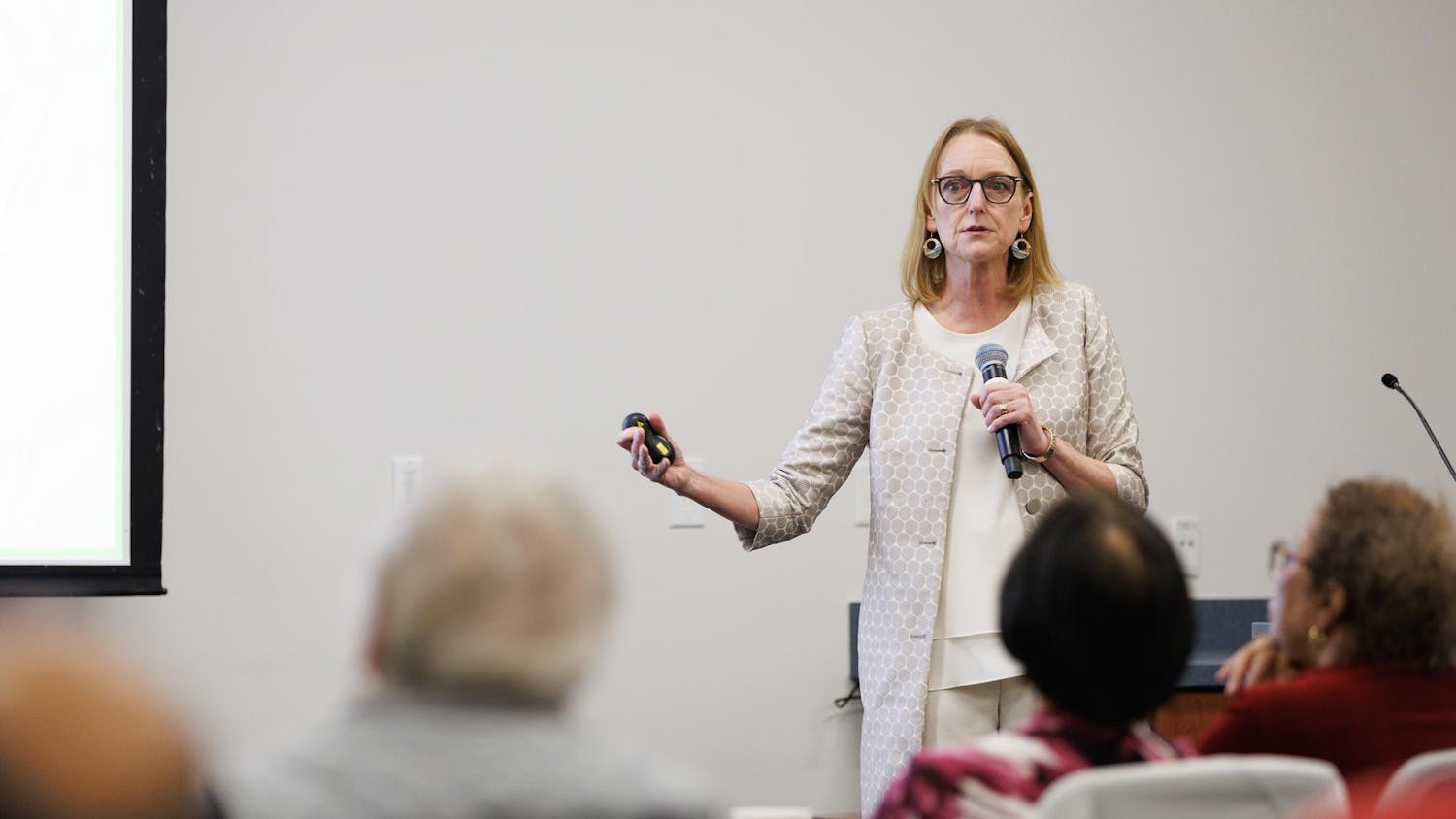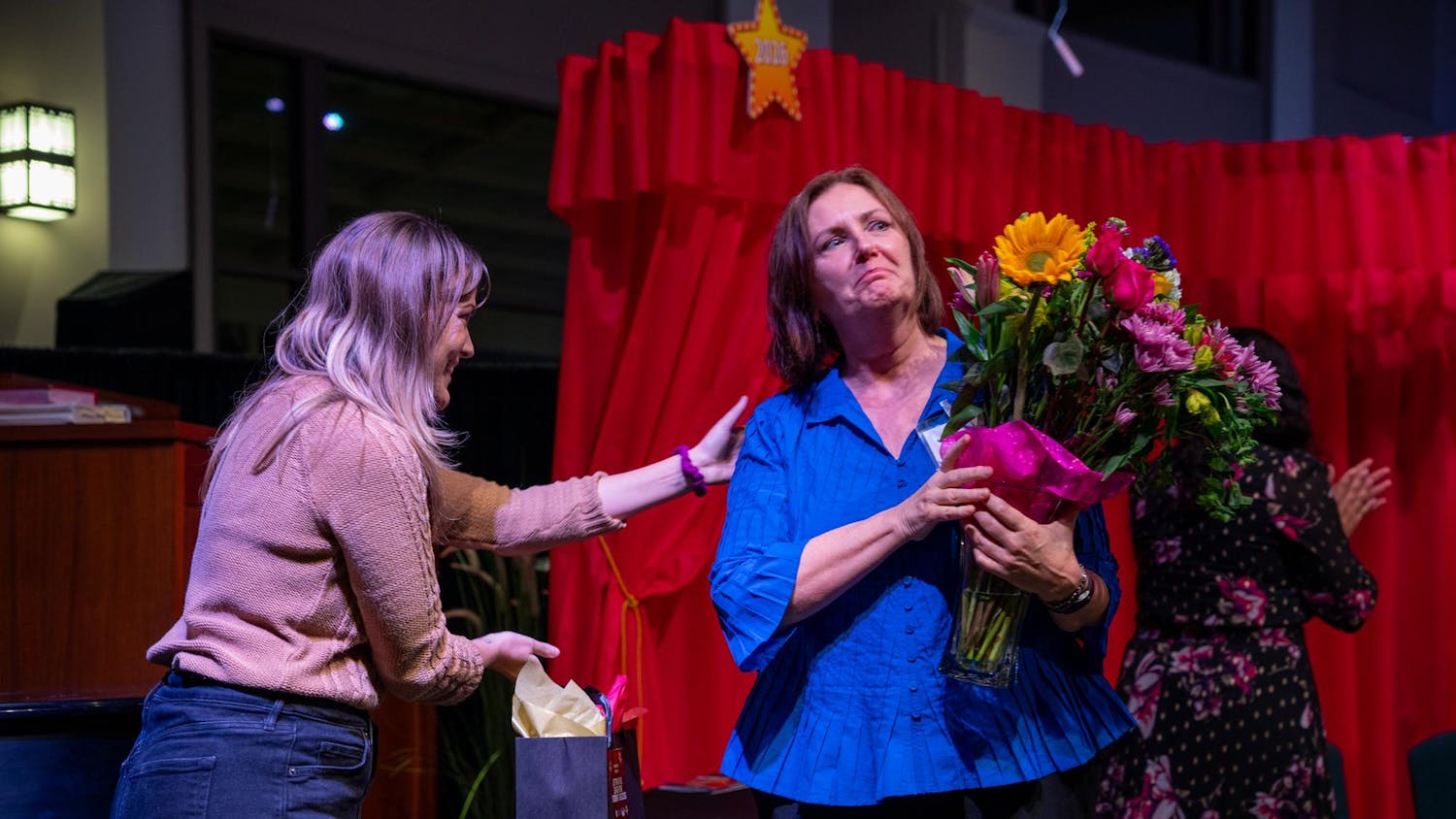Editor’s note: the writer of this column was kept anonymous out of safety concerns.
I realized I was bisexual at age 12, around the same time I became aware of my hometown’s widespread homophobia.
Confronted with the question, “What does that school teach about gay people?” at a neighborhood dinner in middle school, I struggled for answers, nervously squeaking out the rhetoric my Christian school taught.
I was secretly long-distance dating a guy at the same time. The man who asked me the question said gay people chose to be that way.
“Being gay is not a choice,” my mom told the neighbor. “It’s like any other mental illness, like alcoholism.”
Hearing those words marked a crossroads for me: I could either come out and risk being sent to religious conversion therapy or keep my sexuality secret from my family.
So, throughout high school, I learned to hide my pride. I parroted my mom’s beliefs back to her while simultaneously arranging secret phone calls for dates when she was asleep, and finding times to hide and cry when I had breakups she would never know about.
My story is a common one, especially in conservative or religious homes. Navigating all the difficulties of a queer identity while depending on a family that would condemn you for that identity requires strength.
There’s always an inner conflict when you know you can’t be as close to your parents as you want to be. There are whole portions of your life and entire experiences they will never access or be able to connect with you about.
That being said, there’s also an innate level of privilege I have. In the event I end up in a ‘straight’ relationship for the duration of my life, I may never have to address my queerness to my family.
Others don’t have that luxury.
Many of my trans friends have been ostracized by their families, have had to use deadnames and misaligned pronouns during their work interviews, have had to struggle through lengthy and expensive processes to get hormone therapy. For many, hiding your identity simply isn’t an option.
As I witness political issues around LGBTQ+ rights grow in scale here at the state level, it can be difficult to navigate when to stand up.
Staying in the closet can feel almost like an act of complicity. Is there a way I could change my family members' minds if I were more open and proud? Am I doing other people like me a disservice by not being out?
But surviving as a community isn’t always about large actions, protests and demonstrations. For some of us, the biggest step forward in the fight for queer acceptance is to simply survive. To reach a point of success where we aren’t dependent on those who hate us.
Every one of us, no matter where we fall on the gender and sexuality spectrums, are just trying to figure ourselves out. We need to offer ourselves and others in our community patience.
My mom still doesn’t know I’m bisexual. I don’t know if I’ll ever tell her, but I hope I get to a point where I can. In the meantime, I think there are other ways for us in hiding to still fight.
Rally behind those who are vocal, supporting them however you can. Whether through voting, supporting LGBTQ+-owned businesses or simply offering encouragement to your LGBTQ+ friends.
It’s a hard time to be LGBTQ+. Surviving itself is an act of pushing the movement forward.
This columnist is an Alligator staff member.






